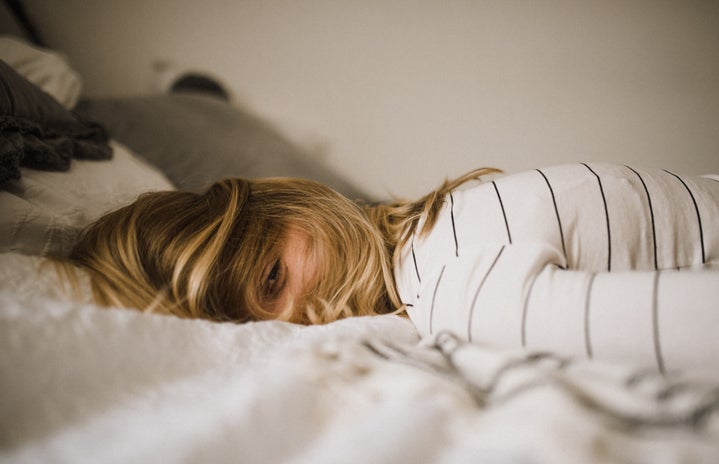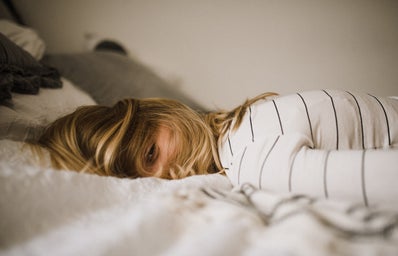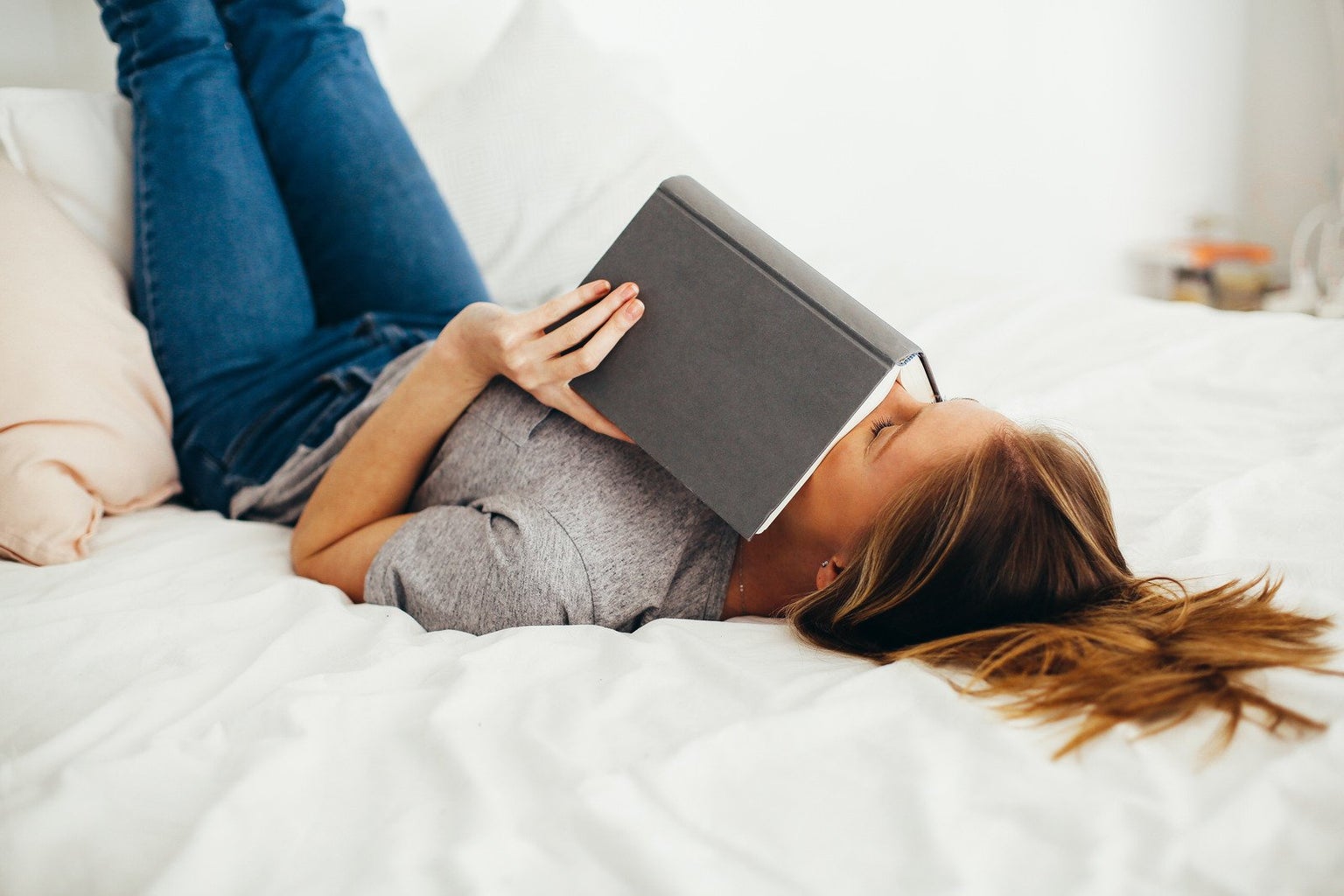I wake up in the morning and the first thing I want to do is go back to sleep. Sitting in class, I have to pinch myself to jolt back to life (even when the lecture content is super interesting!). I move through every day yearning for the evening, when I can finally get comfortable in my bed, turn my brain off, and enter dreamland for a while. Even as I sit here writing, I am doing absolutely everything I can to stay on task and not crawl into bed for a mid–day nap.
I know I’m not alone in this. There have been many times I’ve walked into my room after getting back from class to spot my roommate snoozing in her bed, and I quickly lost count of all the times my friends and I have opted to stay in and chill instead of going out simply because we didn’t have the energy.
The even crazier part is that I spend all day long too tired to function, and then when I finally do get to curl up in bed at the end of the day, it can take me hours to fall asleep (even after I put my phone down for the night).
So what’s the reason that I’m so tired all of the time? Why are all of us so persistently exhausted? Rather unsurprisingly, there are tons of factors that can play a role in chronic fatigue, and they each have different degrees of influence on every individual. I want to talk about a couple that seem to me to be the most relevant, common, and interesting.
Technology
I know that the last thing any of us want to hear is that technology is a major culprit in our dysfunctional sleep habits. Especially when we’ve spent so long resisting our parents’ arguments that we need to spend less time on our devices, it sucks to admit that maybe they were right all along. But the research has clearly shown that they are.
The artificial bright light that our screens emit can send false signals to our brains that it is daytime, even when we are using them at night. Screen use at night can stop our brains from realizing it is approaching bedtime and in turn affect our bodies’ production of melatonin, or the “sleep hormone.” Without our melatonin levels increasing at the end of the day, it can become more difficult for our bodies to fall asleep on time, which then makes it harder to wake up in the morning. This can quickly become a cyclical behavior, where because we are waking up later we start going to bed even later, until eventually our circadian rhythm gets so thrown off that a healthy and consistent sleep schedule becomes a distant dream (no pun intended).
Something else about screens’ effect on sleep that I found really interesting I actually learned just this morning while listening to Emma Chamberlain’s podcast, Anything Goes. Specifically, I was listening to her recent interview with Dr. Anna Lembke, a psychiatrist, professor, and chief of the Stanford Addiction Medicine Dual Diagnosis Clinic, about the “age of indulgence” we are currently living in.
In the interview Dr. Lembke talks about how for some of us, our reliance on technology to generate dopamine production in the brain can become so severe that our bodies overcompensate in trying to combat it. Essentially, we may reduce our natural dopamine production to below baseline levels in an effort to balance the insane amount we get from technology. In turn, these low dopamine levels can cause a number of psychiatric disorders, including (surprise!) insomnia.
So, as tough as it may be to admit, regulating the amount of time we spend on our devices, especially in the later hours of the day, may be an important step in remedying our relationships with sleep.
Stress
I don’t think any college student will disagree with me when I say that higher education can be stressful. From midterms every other week (shoutout to the quarter system) to writing thorough, lengthy research papers to just generally figuring out how to navigate life on your own, there is no shortage of demanding tasks to attend to. Even for those not in college, just a few minutes spent watching the news can ignite a flurry of stress and anxiety.
The American Psychological Association (APA) presents the idea of a sleep–stress cycle, which basically posits that when we get insufficient sleep due to stress — whether it be because we are up all night working on an assignment or simply laying in bed unable to sleep because of everything weighing on our minds — there is a good chance that we will become even more stressed as a result.
Even more unfortunate is that the research seems to suggest that the higher your initial stress levels are, the more likely you are to experience even more stress due to lack of sleep. And the APA also discusses how being short on sleep can lead to a wider range of unfavorable emotions, including overwhelm, lack of enthusiasm, irritation/anger, and decreased patience.
This is why, in addition to the sheer fact that stress in itself is not an enjoyable experience, it is so important to find healthy and effective ways to manage your stress. Not only can doing so potentially improve your sleep quality and health, but it can also make life more enjoyable overall.
***
Of course, there are so many reasons why you might have trouble sleeping. I only discussed a couple here, but they are two of the ones that I think are most relevant to college students. Also, I just think that they are quite interesting!
Another reason I chose these two as my primary focus is because many of the other ones are related to individual health, both physical and mental. These are also so important and definitely deserve attention, but given how personal they are I believe that they are more effectively addressed with a professional.
On that note, if you are struggling with sleep — especially in such a way that it is affecting your daily life — the best solution is to talk to a professional! They have spent years studying and training, and they will be able to provide you with the most effective and personalized advice. That’s really important considering how unique we each are!
I hope that I was able to shed some light on common culprits of poor sleep health, and that maybe you will be able to do some of your own research to determine healthy sleep habits that could work for you! Whatever your sleep situation looks like, I hope you have some sweet dreams tonight!



